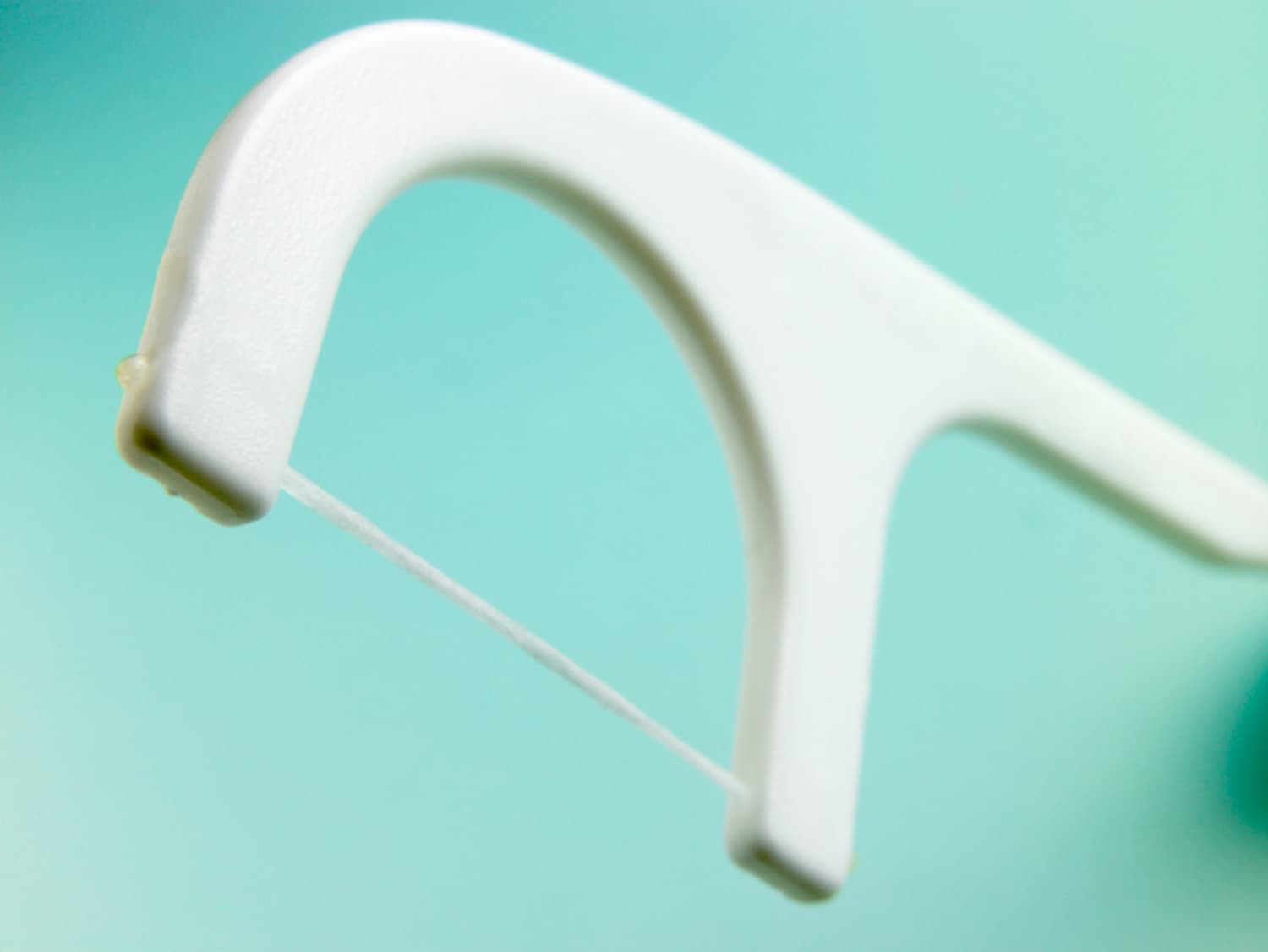
Flossing is an important dental care practice that many people forget about or neglect. Regular flossing not only promotes good breath but also improves your overall oral health by preventing tooth decay and gum disease.
There are different types of floss available, but the most common way to clean between your teeth is with dental floss or tape. This dental health practice involves the removal of food debris from between your teeth that your toothbrush cannot reach. The purpose of both brushing and daily flossing is to reduce the number of bacteria which inhabit our mouths. These are key components to any good oral hygiene program, and will ensure that plaque and bacteria in the mouth are removed.
Bacteria release acids which cause cavities in tooth enamel, and also instigate bad breath. Plaque that is left in between your teeth hardens into tartar, which requires a dentist's tools for removal. Tartar can lead to the gums becoming inflamed, a condition known as gingivitis. This can, in turn, lead to periodontal disease - a condition where bacteria infect the bones and the structures supporting the teeth. If bacteria from the mouth get into the bloodstream, they can cause blood clots and heart disease. People with gum disease are almost twice as likely to have coronary artery disease as those without gum disease.
If you are suffering from the following symptoms, you may be developing gum disease:
- Inflamed or bleeding gums
- An unpleasant taste in your mouth
- Bad breath
- Loose teeth
- Regular mouth infections
- Gaps between teeth
- Pain when biting or chewing
Good Oral Hygiene Habits
Maintaining a healthy oral hygiene routine is important to help reduce the likelihood of gum disease and dental decay. Aside from keeping your teeth white and clean, practising good dental hygiene will save you money because you won't have to visit the dentist as often.
Follow these simple steps for healthy teeth:
- Floss daily and between brushing
- Clean your teeth at least twice a day, after meals and before bed
- Brush gently and thoroughly with a fluoride toothpaste and soft toothbrush
- Use a low fluoride toothpaste for children from 18 month to 6 years of age
- Clean dentures thoroughly every day
- Have regular dental check-ups—children generally need to see a dentist every three to 12 months, while adults between three and 24 months.
Source: Smiles First Dental
The Correct Way to Floss
Many people prefer tape to floss, as it is wider and is less likely to cut into the gums. There are several different types of floss, including waxed floss, unwaxed floss, water flosser and fluoride varieties, and the same goes with dental tape. Natural options include beeswax, jojoba and myrrh coated floss/tape, which are gentler on the gums.
To get started with flossing, take 18 inches of floss and wrap about two inches around the middle finger of each hand. Then, slide the floss onto one side of a tooth and then, using a gentle sawing motion, move it up and down gently for 10 seconds. Repeat this process three times for both sides of each tooth before moving on to another one. Be sure to floss both sides of the back molars as well. After flossing, rinse your mouth with water or mouthwash. There are flossing aids on the market that you can use to make the process much easier.
To floss around your dental implant or braces, use a floss picker tool that has a thin floss strand attached to it with a plastic handle. Be sure to floss behind each tooth carefully by sliding the floss picker gently along the side of each tooth in a vertical motion three times before moving on to another tooth. Floss behind the front teeth by wrapping the floss from the top down and flossing as usual.
If you're not sure whether to brush or floss first, dentists advise flossing first, then gargling with mouthwash, and finally brushing. Dental plaque build-up is reduced, if not eliminated, with this cleaning pattern. In addition, your mouth will feel fresher.
Natural Ways to Freshen Your Breath
Drinking plenty of water will help to keep the mouth moist and the body properly hydrated. Gargling with salt water will also help to clean out bacteria, mucus and food particles in the back of the throat that may be causing bad breath. Tea, particularly the polyphenols in green and black tea, help to stop the growth of bacteria responsible for bad breath.
A selection of herbs and foods are also effective in fighting bacteria and bad breath:
If you are concerned about your breath, dental or oral hygiene see your dentist as soon as possible.
Originally published on May 07, 2009








